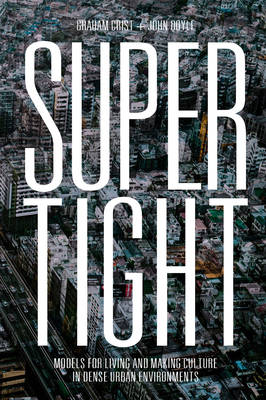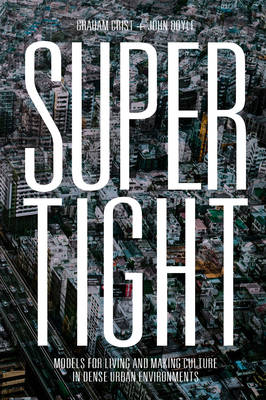
- Retrait gratuit dans votre magasin Club
- 7.000.000 titres dans notre catalogue
- Payer en toute sécurité
- Toujours un magasin près de chez vous
- Retrait gratuit dans votre magasin Club
- 7.000.0000 titres dans notre catalogue
- Payer en toute sécurité
- Toujours un magasin près de chez vous
Supertight
Models for Living and Making Culture in Dense Urban Environments
Graham Crist, John DoyleDescription
Tightness is a positive urban quality, examined through the observations of designers, with a focus on the cities of Asia. The rapidly growing large cities of Asia are critical to understanding our future footprint. Asian cities provide insights into new ways of being densely urbanised. The by-product of this unprecedented metropolitan convergence will be the emergence of new urbanisms and new architectures, new models for living and making culture.
The Supertight refers to the small, intense, robust and hyper-condensed spaces that emerge as a by-product of extreme levels of urban density. Tightness arises as consequence of density, but tightness itself is not density. Tightness is a series of social, economic and cultural practices that have developed in cities as a response to the rapid growth and consolidation of cities. While architectural models of density have been heavily explored, this project investigates the culture of tightness that has emerged in Asian cities over the past thirty years, and the role that designers play in the material and social behaviours of tightness. To be tight is to be small and constrained, but also to be open to the economies and social intimacy of being close. Ultimately this project aims to unpack and convey both the delight and difficulty that emerges through the close occupation of large cities.
With Contributions ofYoshiharu Tsukamoto / Atelier Bow-wow
Atelierco
Rafael A Balboa with Yasemin Sahiner
Sanuki Daisuke
Drawing Architecture Studio
Desiree Grunewald
Sue Hajdu
Tohru Horiguchi
Alban Mannisi, Yazid Ninsalam, Charles Anderson
Minsuk Cho / Mass Studies
New Office Works
Archie Pizzini
Andrew Stiff
Superimpose
Taishin Shiozaki / Shiozaki Lab
WOHA
Spécifications
Parties prenantes
- Auteur(s) :
- Editeur:
Contenu
- Nombre de pages :
- 480
- Langue:
- Anglais
Caractéristiques
- EAN:
- 9781638400066
- Date de parution :
- 06-09-22
- Format:
- Livre relié
- Format numérique:
- Genaaid
- Dimensions :
- 137 mm x 208 mm
- Poids :
- 820 g

Les avis
Nous publions uniquement les avis qui respectent les conditions requises. Consultez nos conditions pour les avis.






